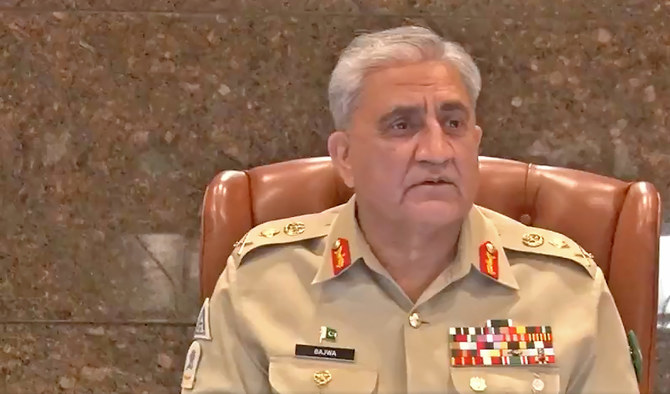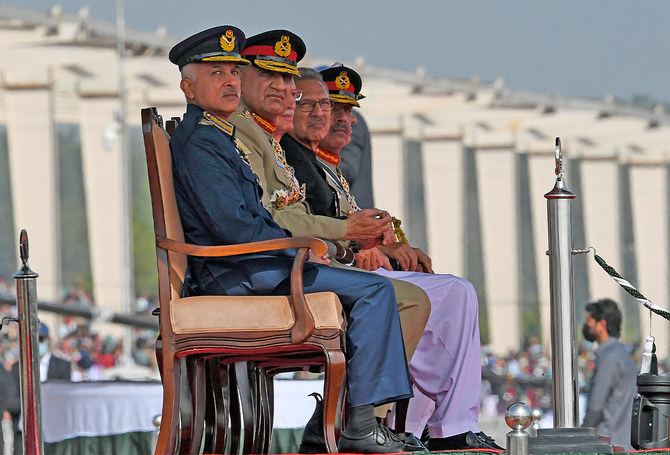ISLAMABAD: Pakistan’s Army Chief General Qamar Javed Bajwa on Thursday recalled innumerable sacrifices of the nation in defeating terrorism and reiterated that the hard-earned peace would be vigorously guarded at all costs, the Pakistani military said.
The army chief said this while addressing participants of the National Workshop Balochistan (NWB) VIII, organized by the Balochistan government and 12th Corps of the Pakistan Army, the Pakistani military’s media wing, the Inter-Services Public Relations (ISPR), said in a statement. The workshop is aimed at enabling the exchange of perspectives among participants through the lens of Balochistan.
Balochistan, the largest and most impoverished province of Pakistan, has long been marred by a separatist insurgency and sectarian divides that have claimed hundreds of lives. Military offensives in recent years have helped bring down violence in the province, though scattered attacks still take place at times.
“Nefarious designs of the forces inimical to peace and stability of Pakistan are being foiled through a synergetic and comprehensive strategy,” General Bajwa said, linking Pakistan’s prosperity with Balochistan.

Pakistan’s Army Chief General Qamar Javed Bajwa addresses participants of the National Workshop Balochistan (NWB) VII in Pakistan's Balochistan province on November 25, 2021. (ISPR)
He said the resolute support of the people of Balochistan had resulted in stability of the province and progress of socio-economic development projects.
The army chief, however, emphasized that internal and external challenges faced by Pakistan demanded a comprehensive national response.
Pakistan was able to remain safe amid a crisis situation in Afghanistan by virtue of effective management of its western zone, General Bajwa said.
“We will continue ensuring our border and internal security which is so vital for national development,” he added.
On Monday, Pakistan’s Planning Minister Asad Umar informed NWB participants his government had initiated 199 projects worth Rs601 billion as part of its Southern Balochistan development package.
The government announced the development package in November 2020. It includes various development projects in nine districts in the south of Balochistan.
“The Southern Balochistan package will focus on providing employment opportunities, health and education facilities, and digital connectivity to the Balochistan region,” Umar said.
“Digital Balochistan will significantly contribute to employment generation for the people of the region.”
PM’s aide Khalid Mansoor briefed about the projects being executed under the multi-billion-dollar China-Pakistan Economic Corridor (CPEC), which has seen Beijing pledge over $60 billion for infrastructure projects in Pakistan and has the Gwadar port in Balochistan at its heart.
Mansoor said substantial work was being done to uplift the province and the development would not only connect it with other provinces, but it would pave the way for regional connectivity.















